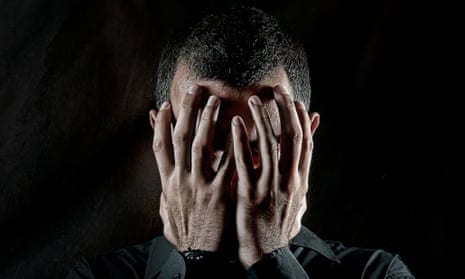The discovery that Germanwings co-pilot Andreas Lubitz deliberately sought to crash flight 4U9525 into the side of a mountain, killing 150 innocent people in the process, has been met in the media with justifiable horror and outrage.
However, while the outrage is understandable, some newspapers seem to have jumped the gun in linking depression and depressives with violence and murder. First, the information wasn’t all there at the time the newspapers went to press. And second, even when it did emerge that Lubitz had a history of depression and had been to see a doctor, does this mean all people with depression are an automatic risk to public safety? You’d think so, given some of the media output that followed.
A variety of front pages have insinuated a causal link between having depression and being a danger to the lives of others. The Mirror, for instance, screams at us that the “Killer pilot suffered from depression”, as if those five words are all we need to know. As if everything is now neatly explained and answered. No messy question marks needed. The Daily Mail does have a question mark, but the question is this: “Why on earth was he allowed to fly?”
As someone who is a depressive, this is all very frustrating. I have had depression, on and off, for 15 years. I have had it to an intense degree and, when I was 24, I very nearly took my own life. And yet it has never once, over the entire period, made me want to harm others.
Depression is a horrible, potentially life-threatening illness – but the lives it threatens are almost always those of the people who suffer from it. If it does emerge that this incident was a result of his depression then we need to be able to differentiate between types of depression. Psychotic depression is not the most common kind, or anywhere near it.
The fact that Lubitz had been hiding his depression from his employers suggests we need less stigma, not more. For instance, imagine if you were a pilot who was suddenly suffering a bout of depression and you wanted to explain this to your employers and ask for some time off to recover. I imagine that such an admission would be harder to make today than it would have been before this press coverage. So all this tabloid screaming means that more people may end up staying quiet about their illness, and that is bad for everyone.
We need, ultimately, to be able to view mental health with the same clear-headedness we show when talking about physical health. A heart attack or a stroke can be dangerous to more than the immediate sufferer when they strike, especially if the person affected is in control of a vehicle. Depression affects one in five adults, according to the official figures (and these figures may be an underestimate because of the silencing effect of stigma), and can strike at any time.
The implication that depressed people are fundamentally irresponsible is a deeply damaging and counterproductive one. Winston Churchill was a depressive. He didn’t just fly planes; he was in charge of the Royal Air Force. He was also in charge of the country and the lives of all its people during the greatest threat to this nation’s survival. Academics, including the philosopher John Gray, have cited his depression as something that made him a better leader.
Buzz Aldrin flew rockets. Abraham Lincoln was an American president. There are a million other examples. Many of the greatest, most responsible people have been depressives. Being a depressive should not imply danger any more than being a man or even a human should. Mental illness isn’t a them/us issue; we are all on the scale somewhere. So we must be very careful to resist ignorance, and combat the stigma that leads to dangerous silence.
We must keep talking, and educating. A depressed man doing a terrible thing does not mean that all or most depressed people could do terrible things. But the stigma itself is dangerous and costs lives. Three times as many men kill themselves as women, yet far fewer men seek help for depression than women, as men feel the stigma more keenly. The illness is still, in some ways, mysterious. There’s much that’s still unknown about the science of the human brain. But ignorant speculation will never make the world a safer place. This particular case was clearly not just about depression. Millions of people manage their depression and lead responsible lives without killing 149 others.
